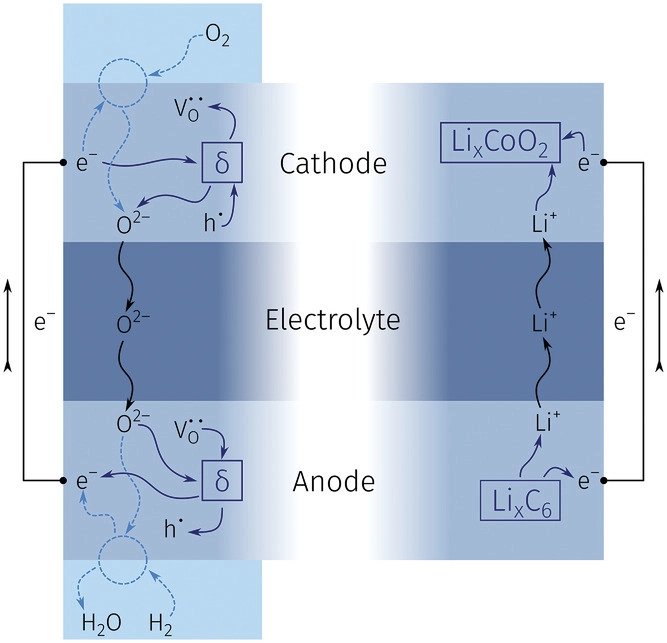Researchers from the Vienna University of Technology (TU Wien) have developed an oxygen-ion battery that purportedly rivals lithium-ion batteries with an “extremely long lifespan,” according to a TU Wien statement.
The scientists set out to show that mixed ionic electronic conducting (MIEC) perovskite-type oxides, electroceramic materials usually used in solid oxide fuel and electrolysis cells, can be used to fabricate a solid-state oxygen ion battery operating at 350 C to 500 C.
“These oxygen ion batteries may offer certain advantages over other battery technologies, such as [lithium-ion], sodium sulphur, or ZEBRA batteries,” the academics said. “Consisting only of solid, non-flammable oxides, they present much less of a security risk in the case of device failure. Furthermore, they can be fabricated mostly from abundant elements, and in particular, do not depend on critical elements such as cobalt or lithium.”
The team used a ceramic material called yttria-stabilized zirconia (YSZ) with MIEC thin film electrodes as model cells. These ceramic materials can absorb and release doubly negatively charged oxygen ions. When an electric voltage is applied, the oxygen ions migrate from one ceramic material to another, after which they can be made to migrate back again, thus generating an electric current.
“This is very similar to lithium-ion battery electrodes, which store electrical energy by changing their lithium content. Essentially, voltage-driven oxygen stoichiometry changes correspond to charging/discharging of the chemical capacitance, where self-discharging via oxygen exchange with the atmosphere is prevented,” the researchers explained.
Crucially, they believe oxygen exchange with the atmosphere in the other direction can lead to a very long battery lifespan.
“The oxygen-ion battery can be regenerated without any problems: If oxygen is lost due to side reactions, then the loss can simply be compensated for by oxygen from the ambient air,” said TU Wien.
The academics fabricated full cells of solid-state oxide batteries by combining two electrodes with different oxygen insertion potentials and used them to predict the performance of an optimized solid-state oxide ion battery.
Results show volumetric energy densities of up to 140 mW h cm-3, which corresponds to around 30% of the volumetric energy density of current lithium-ion batteries, according to the scientists. DC measurements of the cell showed capacities as high as 120 mA h cm-3 at a cell voltage of 0.6 V at 350 C to 400 C. Both of the electrodes exhibited cycling performance with faraday efficiencies above 99%.
“If you need a large energy storage unit to temporarily store solar or wind energy, for example, the oxygen-ion battery could be an excellent solution,” said researcher Alexander Schmid. “If you construct an entire building full of energy storage modules, the lower energy density and increased operating temperature do not play a decisive role. But the strengths of our battery would be particularly important there: the long service life, the possibility of producing large quantities of these materials without rare elements, and the fact that there is no fire hazard with these batteries.”
The authors shared their findings in “Rechargeable Oxide Ion Batteries Based on Mixed Conducting Oxide Electrodes,” which was recently published in Advanced Energy Materials. They have submitted a patent application for their invention.
This content is protected by copyright and may not be reused. If you want to cooperate with us and would like to reuse some of our content, please contact: editors@pv-magazine.com.



By submitting this form you agree to pv magazine using your data for the purposes of publishing your comment.
Your personal data will only be disclosed or otherwise transmitted to third parties for the purposes of spam filtering or if this is necessary for technical maintenance of the website. Any other transfer to third parties will not take place unless this is justified on the basis of applicable data protection regulations or if pv magazine is legally obliged to do so.
You may revoke this consent at any time with effect for the future, in which case your personal data will be deleted immediately. Otherwise, your data will be deleted if pv magazine has processed your request or the purpose of data storage is fulfilled.
Further information on data privacy can be found in our Data Protection Policy.